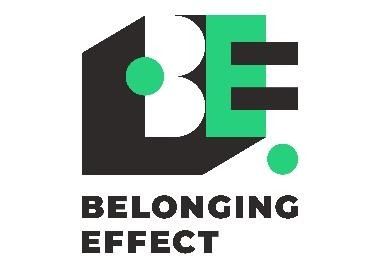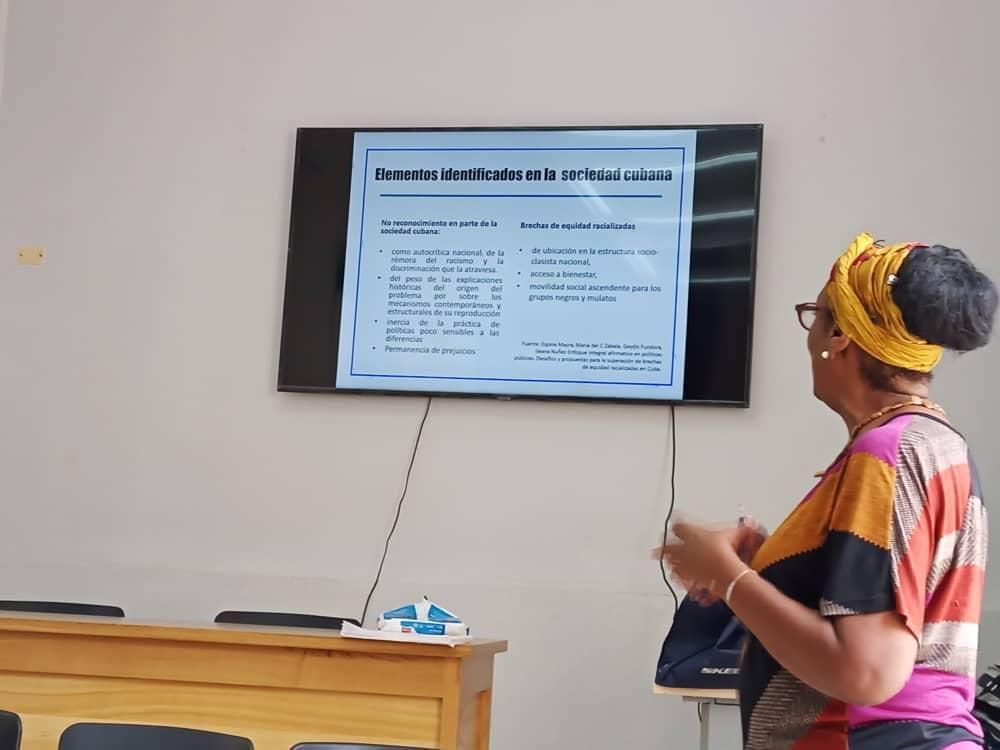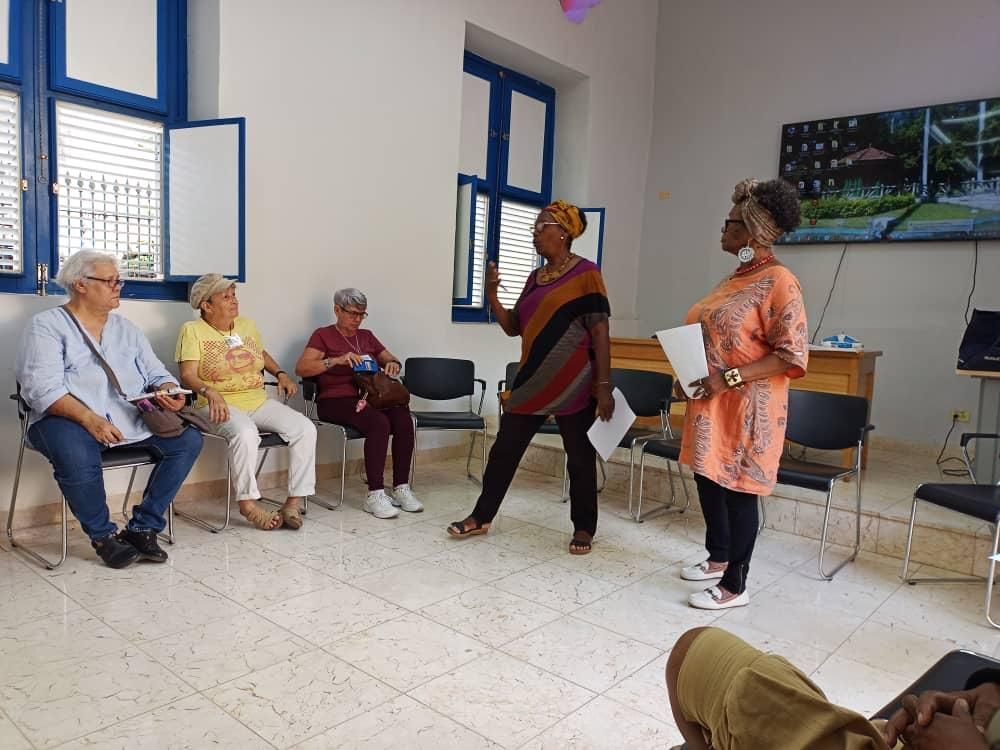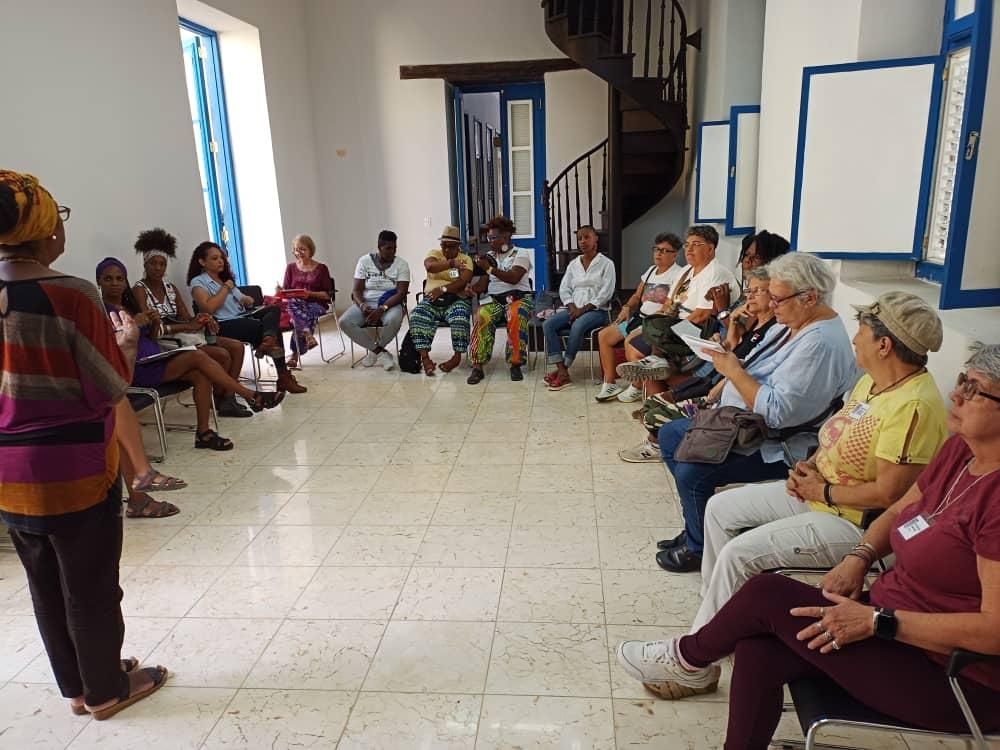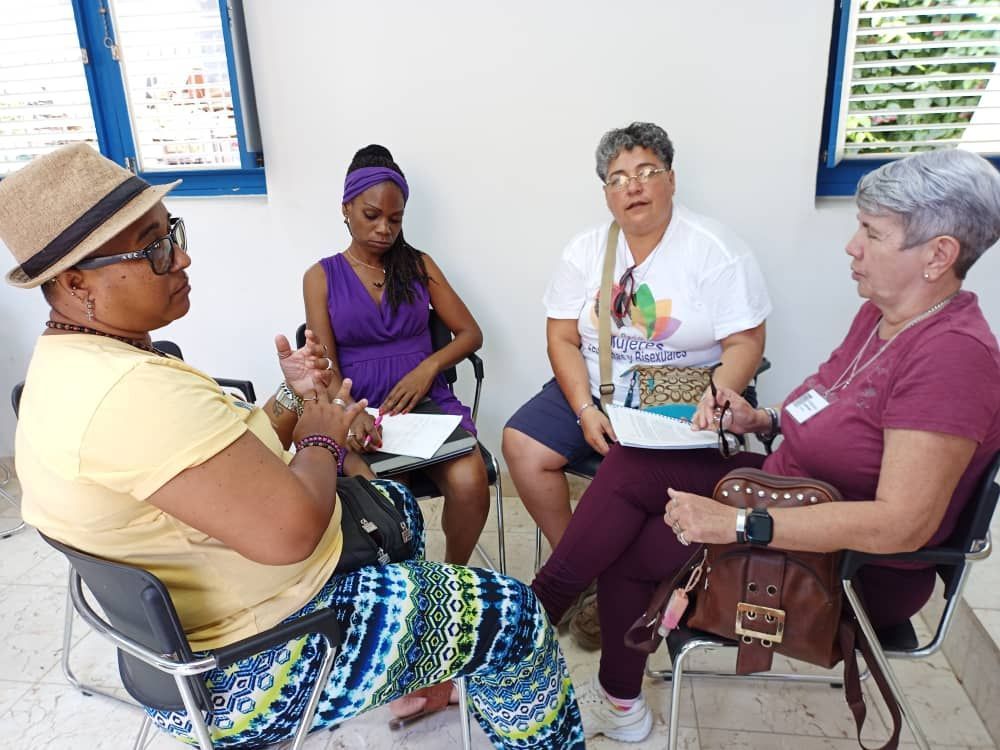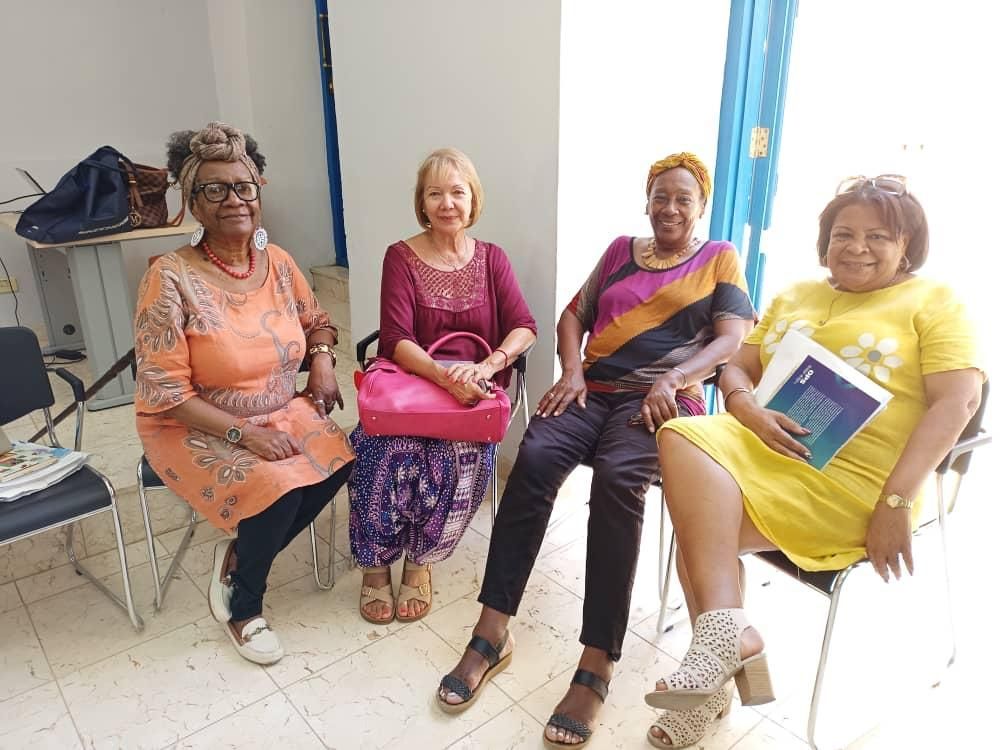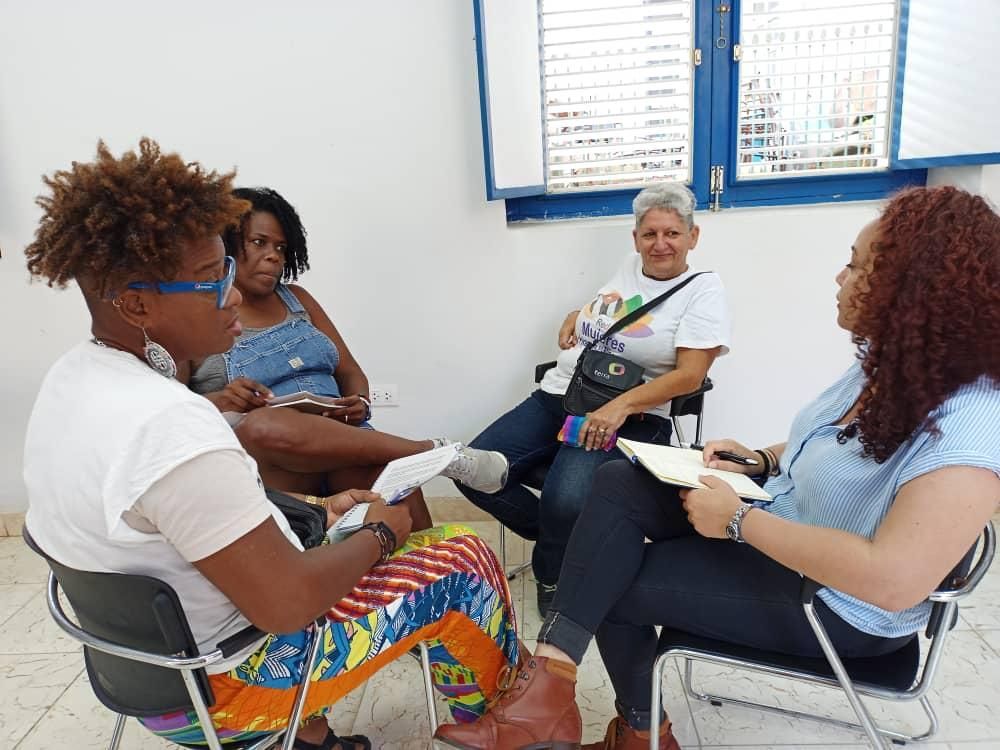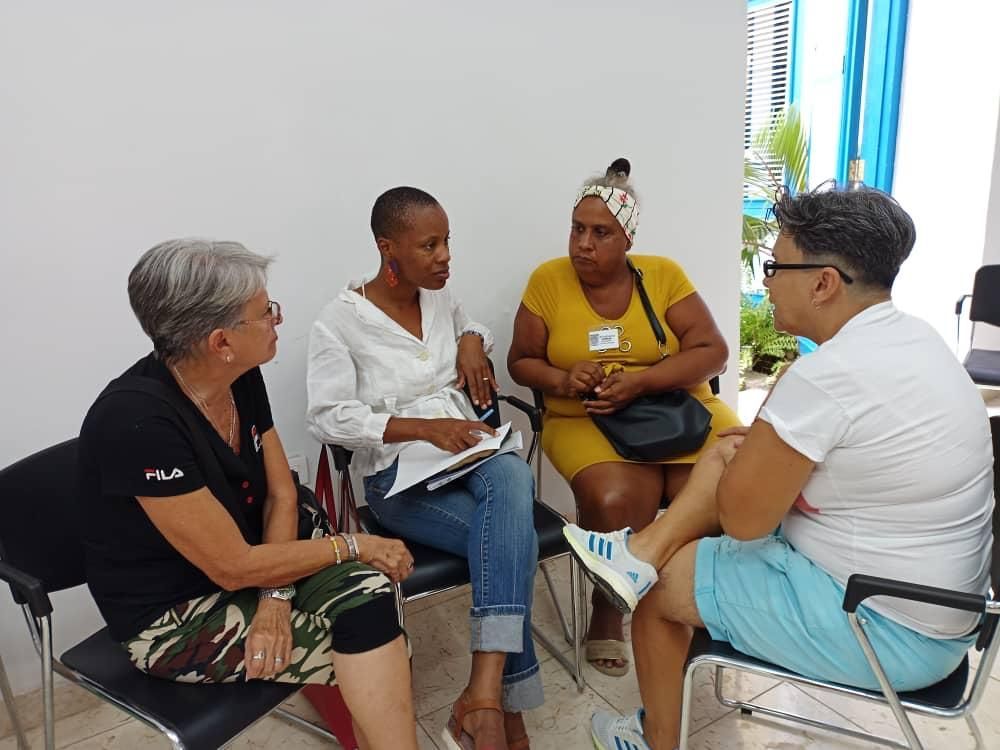Embracing Diversity and Empowerment: Insights from a workshop on sexuality and stereotypes
In a world striving for inclusivity and equal opportunities, education emerges as a powerful tool. Every individual, irrespective of their background, deserves the chance to learn, grow, and contribute to society. Such values are the core essence of the Foundation, which recently organised a remarkable workshop led by Dr. Rosaida Ochoa Soto and Norma Guillard Limonta. This workshop was not only about education; it was a celebration of diversity and empowerment that left a lasting impact on all participants.
Setting the Scene: A Party of Ideas
Dr. Rosaida's presentation technique had a unique twist – participants were invited to imagine a party where each person was to bring something starting with the initial of their name. As the room buzzed with excitement, the icebreaker led to meaningful introductions. This approach set the stage for an engaging, collaborative environment, where everyone had a voice.
Expectations Unveiled: Brainstorming for Transformation
The workshop's success hinged on understanding participants' expectations. Through the Brainstorming technique, two questions took centre stage: "Why are you here?" and "What do you hope to achieve from this workshop?" As the responses flowed, a tapestry of ambitions emerged:
- Enriching work tools
- Elevating cognitive levels
- Connecting with fellow members of the LGBTQ+ community
- Reuniting with old friends and allies
- Creating community awareness about LGBTQ+ issues
- Sharing personal experiences for mutual growth
- Multiplying new techniques in various spaces
The aspirations showcased a commitment to growth, diversity, and a drive to make a difference.
Eyes on the Screen: The Visual Journey Begins
An audio-visual presentation on the "Advancement Program for Women" brought new dimensions to the discussions, and lively debates ensued as the video was analysed:
- Concerns arose about gender diversity, as it did not address orientation.
- The absence of sexual health education for lesbian, bisexual and transsexual women was noted.
- Dr. Vivian, a gynecologist, discussed the need for informed consent and choices in health procedures, in particular the the cytological test.
- Stereotypes and clothing barriers were highlighted, hindering comprehensive health care, including the cytological test for trans-men.
- The importance of communication and gender perspective integration was emphasized.
- Education's role in eradicating discrimination and delivering equity was underscored.
This video was reviewed in the Municipality of Plaza de la Revolución by the FMC, and suggestions for improvements were made, but in this viewing it was seen that these recommended changes were not made.
Championing Equality: Confronting Racism and Discrimination
The focus then shifted to the "Program against Racism and Racial Discrimination." Dr. Rosaida prompted the group to explore where Afro-descendant lesbian women faced discrimination and where progress had been made. The ensuing discussions encompassed various facets:
- Racial discrimination awareness was lacking among many.
- Policies often failed to account for intersectionality.
- Inequities persisted in employment, socioeconomics, and living conditions.
- Communication gaps hindered the program's effectiveness.
- Historical reparations and knowledge dissemination were deemed vital.
Knowledge Dialogues: Breaking Stereotypes and Promoting Empowerment
Norma introduced the Knowledge Dialogues Methodology, focusing on sexuality and sexual stereotypes. Groups engaged in dynamic discussions, revealing insights on the following areas:
- The struggle for leadership recognition due to stereotypes.
- The tension between feminine appearance and harassment from men.
- Beliefs about lesbian roles and relationships.
- The power of intercultural dialogues to foster trust.
- The importance of horizontal communication in empowerment.
The workshop was praised for its positive impact on awareness and identity, though challenges of stereotypes persisted.
Reflections and Forward Movement
The workshop's conclusion sparked reflections on its significance. Participants voiced their evaluations in a single word: Pride, Positive energy, Freedom, Joy, Satisfaction, Courage, Love, Resilience, Enrichment. It was evident that this event had ignited a fire of positive change within each attendee.
A Brighter Tomorrow: An Education for All Vision
As the workshop closed, the echoes of discussions reverberated in the air. The Foundation's commitment to diversity, empowerment, and inclusivity shone brightly. This gathering wasn't just a workshop; it was a journey that embraced differences and fuelled progress, leaving behind a legacy of understanding, respect, and unity. In a world striving for education and equity, events like these illuminate the path towards a brighter tomorrow for all.

